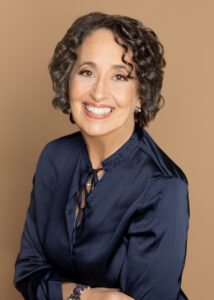Oh, Lord! Who Am I? What Am I Doing?


Who am I? What in the world am I doing? Those incessant, unanswerable questions reverberated through my consciousness like an endless ping-pong game. Every new homeschool day began with a question of conscience and disorientation: What am I supposed to be doing today?
My first year of homeschooling, I set out to discover some identifiable touchpoints to guide me through my new role in my five sons’ lives. No longer playing the singular part of “Momma,” I assumed the additional persona of sole educator. Their lives and futures now depended on me to assure their ability to obtain the knowledge, values, and skills required to become productive members of their world.
Who was I? What was my name or title in this new role? Names have meaning and generally define what the person does. I knew what my name “Momma” meant. It meant providing physical care, emotional support, and spiritual guidance. But this new endeavor? Was I a teacher, schooler, or educator?
Maybe that kind of thinking never crossed your mind, but for me, to tackle a new endeavor, I must know who it makes me. Knowing who I am in the position helps set up mental and emotional frameworks from which to organize, prepare, and operate so I can be efficient and effective, utilizing every moment well. A named framework like “Mother” defines the position’s demands and parameters.
In the summer before my first homeschool year, I explored the ramifications of the role I was to play. Was it teacher, homeschooler, or educator? Logophile that I am, I turned to my trusty Webster’s New Collegiate Dictionary, original copyright 1916. Here’s what I discovered:
Teacher: Teachers make people know how to do things. They impart and make pupils aware of knowledge by sharing information and experience. They train or accustom students to some action to fulfill or complete a task.
Schooler: Well, there’s actually no such word as “schooler.” That makes it difficult to define the role of “homeschooler” accurately. Thus, I explored “school” as an action, a verb. In that sense, school points to training, discipline, and drill until the desired action is an ingrained habit.
Educator: An educator is someone who develops and cultivates mentally or morally; makes others fit for a calling by systematic instruction. The word “educate” is akin to “educe.” Educe means to draw forth—often something that is latent—to bring it out, to elicit it.
Then, I considered the fuller implications of the three possible roles based on their names or titles.
Definitionally, “teach” and “school” have much in common. Both involve training. Training is a thoroughly Biblical concept. Train up a child in the way he should go. Yet Misters Webster and Merriam informed me that training entailed preparation as for a test or contest by instruction, drill, and exercise without a mention of intellectual or emotional involvement.
Further investigation revealed “training” also involves dragging. Yep, dragging! Immediately, I envisioned myself dragging five strong-willed boys over the academic finish line. That didn’t sound appealing, considering my role’s twenty-year probable run.
Additionally, training conjured up pictures of dogs, horses, elephants, and lions. We train animals to perform certain actions in specific, predetermined ways for the sanity and safety of man and beast. My personal child rearing goal was to raise well-behaved, polite, curious, and responsible children who were thoughtful in their actions, not unthinking, pre-conditioned automatons.
So, what about “educator”? Actually, “educate” is a more nuanced word than “teach” or “school.” As I mentioned earlier, “educate” is a first-cousin to “educe,” which means to draw or lead forth, as to bring out something that is unseen or unrecognized. At its core, to educate is not only a process of imparting knowledge, discipline, or instruction but also of drawing out of children their hidden gifts and talents, those I might overlook if I assume the role of “teacher” or “homeschooler,” not “educator.”
There’s more. Accepting the role of “educator” changed my perception of who I was and what I did. Like so many other parents who teach their children at home, I often answered the question “What do you do?” with a self-deprecating answer: “Oh, I’m just a homeschooler.”
Just a homeschooler?! No!
I beg to differ with you. You and I, and the millions of men and women who teach their children at home, are not just a homeschooler.
We are professionals. Professional educators.
Professionals are individuals who devote their time, energy, and resources into the primary activity of their lives. They are focused on providing services of quality and value to others. Every effort is devoted to maximizing skill, proficiency, and knowledge. No stone is left unturned, no moment wasted in the pursuit of excellence. Professionals know their role without question. If they have a question, they get understanding and pursue it passionately, no matter how much the investment costs to get. It’s proverbial wisdom.
I did not realize the ramifications way back when casting myself as “educator.” I had no idea the sacrifices, mistakes, hours of study, reading, and experimenting it would take to fulfill the role well enough to add “professional” to that moniker. I read and read and read, purchased and purchased and purchased. Curriculum, how-to-teach books, training workshops. I even went back to school and earned a PhD in educational psychology. Okay, you don’t have to go that far to consider yourself a professional educator!
However, I cannot overemphasize the high value of studying the field of education, diving deeply into the art and science of teaching and learning, fully comprehending the subject matter you teach, and mentoring and interacting with master, professional educators.
We 21st century home educators are blessed to have access to some of the most profound thinkers and contributors to the field of education at our fingertips. Google Scholar, among other search engines, can direct you to new and old trends and research in the field. You may not agree with some, but you will learn about the education profession more accurately. Undoubtedly, you will discover new ideas that might improve your own education practice. You will be more confident and waste less time because you know who you are and what you’re doing.
As home educators, with our unique pressures and sacrifices, we often assume we cannot afford the investment of time or assets to add “professional” to our titles. We know professions are not for the faint of heart. They require a rigorous course of study, a license to practice, and continuing education to maintain it.
Thankfully, those are not requirements to be home educators in the United States. However, the investment in yourself to know that you know you are a Professional Educator will deliver untold dividends year after year in terms of increased confidence, additional knowledge, and better academic outcomes for your children. Who knows? That credential may launch you into a whole new career role when your last child walks.
 Educational psychologist Dr. Brenda Murphy lives out her mission to Serve All In Love by sharing her deep knowledge of the art and science of teaching through professional development, personal consultation, and mentorship. She encourages all teachers, parents, and students to experience new possibilities through her belief that they each possess undiscovered gifts and talents. Find out more about Dr. Brenda and how she helps parents like you at www.sailawaylearning.com.
Educational psychologist Dr. Brenda Murphy lives out her mission to Serve All In Love by sharing her deep knowledge of the art and science of teaching through professional development, personal consultation, and mentorship. She encourages all teachers, parents, and students to experience new possibilities through her belief that they each possess undiscovered gifts and talents. Find out more about Dr. Brenda and how she helps parents like you at www.sailawaylearning.com.














































